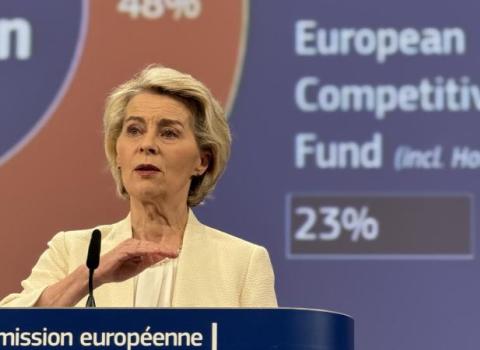
This is like a continuation of the cheap credit deals that take a large part of the blame for the state the industry finds itself in. Come the credit crunch, motorists decided they could perfectly well manage to get around in a car that was more than three years old. Car hire companies and corporate fleet managers faced a different set of sums when weighing their renewals policy.
In any case, this is not a regular recession, where markets can be pump-primed back to life. Saving Europe’s car industry is not just a case of restructuring – painful though that is proving – and waiting for an upturn in the economy. Existing models are too expensive to run, generate too much carbon dioxide and other pollutants, and have a lifespan tied to supplies of non-renewable fuel.
To be blunt: as many other sectors are being forced to recognise, the current approach to increasing sales by titillating consumers with newer, faster and shinier goods won’t do any more.
As we report the German car industry recognises its products need to change. Despite the awful turmoil and contraction, it is championing spending on R&D and innovation as the way to respond both to environmental imperatives, and to the financial crisis.
And the car industry is not alone here. At the same time, as we report also, the aerospace industry has put sustainability at the top of the Clean Sky Joint Technology Initiative which gets off the ground this week with the first call for proposals. The research to be carried out in this JTI represents a commitment from the European Union and the industry to encourage the development of greener products to make air travel more sustainable.
After the rescue of Opel, the German automobile association, Verband der Automobilindustrie, is promising a shriven industry will be playing a different tune when it comes together at this year’s International Motor Show in Frankfurt, to be opened on September 17 by the German Chancellor Angela Merkel. Rather than the faster and bigger standards of the past, clean diesel and direct-injection petrol engines, petrol-electric hybrids and all-electric cars will be centre-stage.
No doubt the internal combustion engine will remain dominant for some time to come, but the notion that the car industry can maintain its gas-guzzling, built-in obsolescence approach is dead.
It may be hard to justify maintaining R&D spending when all around are cuts. But the only way out of the crisis is to invest in R&D and develop cleaner, greener cars.





 A unique international forum for public research organisations and companies to connect their external engagement with strategic interests around their R&D system.
A unique international forum for public research organisations and companies to connect their external engagement with strategic interests around their R&D system.